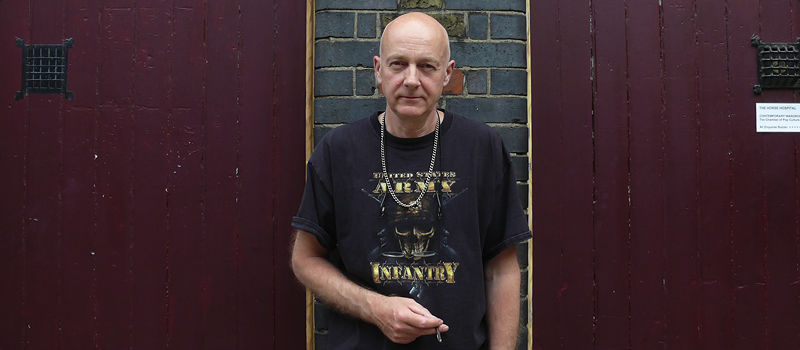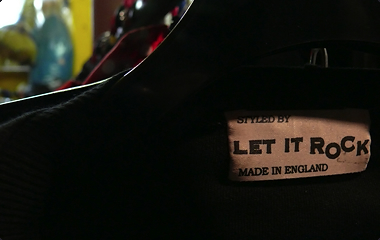STREET WEAR HISTORY
The guard of culture 'Roger K. Burton' talks about
the history of British Youth fashions
08 11/5 UP
Text:Andrew Bunney Translation:Mayumi Horiguchi

- A :
- Is there something unique about a UK style or spirit?
- R :
- Traditionally English people don’t like change, but young generations do like change and like to be excited by change as a reaction to their parents, who probably did like change when they were young too. In the last 20-odd years it has changed as the parents of kids now were part of the punk, mod, hippie generation so it is like 'anything goes' and are now far more open to let their kids do things as they did outrageous stuff.


- A :
- What are the golden ages of UK fashion for you?
- R :
- I grew up through the Mod thing, but it’s all relative.
When I was a Mod, I really didn’t like Bikers. I didn’t want to fight them, I’ve always been a pacifist, I was more concerned about my clothes. I didn’t want to get into a fight with bloody rockers. It was an elitist thing not to like bikers, greasy stinky leathers… but I’m really fascinated by it now. Mod came and went, but the whole biker culture did carry on. I have the biggest respect for Hell’s Angels. I love their logos and iconography. And I hated it at the time.
When you are growing up and going through fashion phases, things are changing week-by-week, day-by-day. English Youth has a tradition of "on to the next thing" and you dismiss the past to some degree. Because I’ve chosen the route of collecting the past or being a keeper of culture, I have to revisit it and understand it. For example, I was not into Hippie at all, I hated all that stuff, I hated the Rolling Stones. But as a company that is supplying period clothes for film and TV, when I was doing the Brian Jones movie, and started researching what he wore and what his peers wore, it was like discovering something new, and it was really quite interesting. I love something for a reason, then get swayed for whatever reason and then come back to it.
- A :
- What can we learn from looking at the past?
- R :
- One can sense a spirit that was there, but maybe to me it was just nostalgic.
I’m constantly learning from it, but it is more out of curiosity – "why did a person design something like that when it is totally un-wearable". New generations get excited when they see stuff here. There is this interest in ’80’s club scene stuff that was chuck-away at the time. I don’t know what kids see in old clothes anymore. I don’t know what it means to them – it only means something to me because I’ve lived through it. For an 18 year old today, I can give them a whole story behind it, but does it mean anything? Does it have any resonance? I can feel a spirit in things, but I don’t know if that it just me.
- A :
- What are you looking for?
- R :
- I like clothes for many different reasons. Primarily I’m looking for individual items. I’m still looking for items that have been worn in rebellion in some way from any period. That element excites me. That it was designed or worn in such a way that it upset or shocked people, no matter how small it may be. It doesn’t have to be part of a cult or movement, just something about a garment that would have excited the person that wore it; I can get off on that.
I don’t know what I’m looking for. When I see it, I know it.


